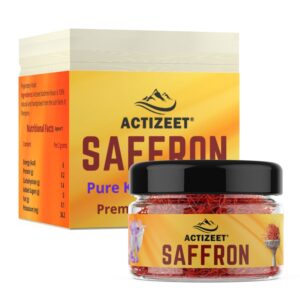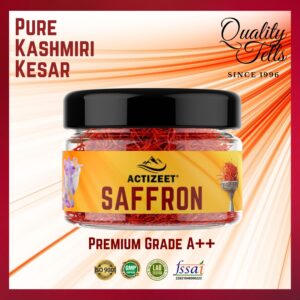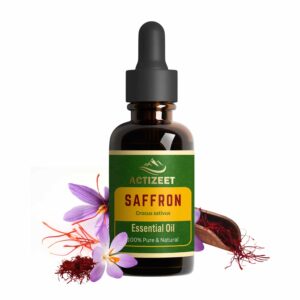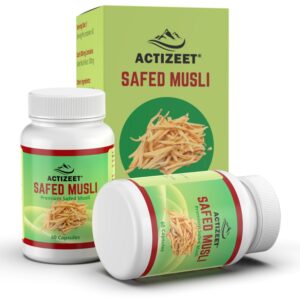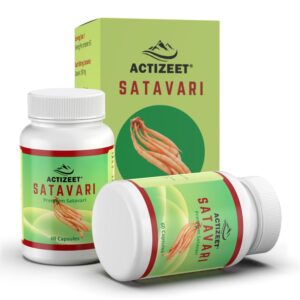Today, mental health and its importance to our overall well-being are widely accepted as a necessity. With the stress of everyday life, it becomes all the more important to focus on ways of improving our emotional and psychological states. But did you know saffron, an ancient spice used in cuisine around the world, could be an effective tool for boosting your mood? In this post, we explore the mysterious powers of Saffron (Kasar) as a natural antidepressant, and mood booster and its effect on mental health. Read on to learn about saffron’s potential to improve cognitive function and memory!
Table of Contents
ToggleIntroduction to Saffron
Saffron is a spice that has been used for centuries in traditional medicine. It is thought to have a range of health benefits, including the ability to boost mood and act as a natural antidepressant. In recent years, saffron has been the subject of several studies looking at its potential mental health benefits.
A number of studies have shown that saffron can help to improve symptoms of depression. One study found that saffron was as effective as the antidepressant imipramine in treating mild to moderate depression. Other research has found that taking 30 mg of saffron daily can significantly reduce symptoms of depression compared to a placebo.
Saffron may also be beneficial for other mental health conditions such as anxiety and stress. One study found that taking 200 mg of saffron per day significantly reduced anxiety levels in people with a generalized anxiety disorder (GAD). Another study found that taking 1 gram of saffron daily improved stress-related symptoms in healthy adults.
Overall, the research suggests that saffron could be an effective natural treatment for depression and other mental health conditions. If you are considering trying saffron for your mental health, it is important to speak to a doctor or mental health professional first.
Symptoms of Depression and How Saffron Can Help
There are many symptoms of depression, and they vary from person to person. Some common symptoms include feeling sad or empty, feeling hopeless or helpless, having low energy levels, problems with concentration and decision-making, and changes in sleep patterns or appetite. Depression can also lead to physical problems such as headaches, gastrointestinal issues, and chronic pain.
Saffron is a spice that has been shown to be effective in treating depression. In a study of 60 people with major depressive disorder, those who took 30 mg of saffron per day for 8 weeks had significantly improved symptoms compared to those who took a placebo. Saffron works by increasing levels of serotonin and other neurotransmitters in the brain, which can help to improve mood and reduce feelings of sadness and despair.
What are the benefits of Saffron?
Saffron has been used for centuries in traditional medicine to treat a variety of ailments, including mental health conditions. In recent years, modern science has begun to unravel the mechanisms behind saffron’s therapeutic effects.
A growing body of research suggests that saffron may be an effective natural treatment for depression and other mood disorders. The active ingredients in saffron, crocetin, and safranal, have both been shown to have antidepressant and anti-anxiety properties in animal studies.
Human studies on the effects of saffron are still relatively limited, but the available evidence is promising. One small study found that taking 30 mg of saffron extract per day significantly improved symptoms of depression after six weeks compared to a placebo group.
Other studies have suggested that saffron may also be effective in treating premenstrual syndrome (PMS), obsessive-compulsive disorder (OCD), and Alzheimer’s disease. While more research is needed to confirm these findings, the available evidence suggests that saffron may be a powerful tool in the treatment of mental health conditions.
How Food Affects Brain Function, Mood, and Memory
Saffron has been shown to have a positive effect on brain function, mood, and memory. In a study published in the journal Phytotherapy Research, saffron was shown to improve cognitive performance in healthy adults. The study found that saffron improved attention, working memory, and verbal fluency.
In another study, published in the Journal of Ethnopharmacology, saffron was found to be an effective treatment for mild to moderate depression. The study found that saffron significantly improved symptoms of depression, including fatigue, appetite, and sleep disturbances.
Saffron has also been shown to improve memory and learning. In a study published in the journal Planta Medica, saffron was shown to improve spatial learning and working memory in rats. The study found that rats treated with saffron showed increased hippocampal activity and improved performance on spatial learning tasks.
So if you’re looking for a natural way to boost your brain power, mood and memory, don’t forget about saffron!
Why is it important for health and psychological well-being?
There are many reasons why saffron is thought to be good for mental health. For one, it contains a number of plant-based compounds that have been shown to have mood-boosting and antidepressant effects in studies. These include safranal, which gives saffron its characteristic aroma, and crocin, a compound that’s thought to be responsible for saffron’s ability to improve mood and cognitive function.
Saffron also appears to have anti-anxiety and stress-reducing properties. In one study, participants who took a daily dose of saffron extract for four weeks reported significantly lower levels of anxiety and depression than those in the placebo group. And in another study, rats that were given saffron experienced less stress and anxiety when exposed to stressful situations than rats that didn’t receive the herb.
So why is saffron such a powerful mood booster?
Researchers believe it has to do with the way the herb interacts with neurotransmitters in the brain, including serotonin, dopamine, and norepinephrine. These neurotransmitters play an important role in regulating mood, so by impacting their levels of activity, saffron may be able to lift your spirits naturally.
The Mental Health Crisis
In our fast-paced, constantly-connected world, it’s no surprise that mental health issues are on the rise. According to the World Health Organization, depression is now the leading cause of disability worldwide, and rates of anxiety and other mental health disorders are also increasing. With conventional treatments like antidepressants often failing to provide relief, many people are turning to natural alternatives in hopes of finding something that works for them.
Saffron has been used as a natural remedy for centuries, and recent studies have shown that it may indeed be effective in treating depression and other mood disorders. Saffron supplements have been found to increase levels of serotonin and other neurotransmitters in the brain, resulting in improved mood and reduced anxiety. They have also been shown to help regulate sleep patterns, which can be disrupted in those with depressive disorders. If you’re struggling with mental health issues, saffron may be worth a try!
Negative and Positive Effects of Stress on Health
It is no secret that stress can have a negative impact on our physical and mental health. Studies have shown that chronic stress can lead to a host of health problems including heart disease, high blood pressure, anxiety, depression, and more. While it is important to manage stress in order to stay healthy, there is some evidence that suggests that some amount of stress can actually be beneficial for our health. A recent study published in the journal Frontiers in Neuroscience found that moderate levels of stress may actually improve memory and protect the brain from age-related cognitive decline.
So what does this all mean? It seems that while too much stress can definitely be harmful to our health, a little bit of stress may actually be good for us. Of course, everyone reacts differently to stress so it is important to find what works best for you and to avoid any situations that are excessively stressful.
Improving Mood & Memory with Saffron
Saffron has been shown to be an effective natural antidepressant and mood booster. In a study published in the Journal of Nutrition, saffron was found to be as effective as the antidepressant fluoxetine (Prozac) in treatment-resistant patients with major depressive disorder.
Saffron has also been shown to improve memory and cognitive function. In a study published in the journal Planta Medica, saffron was found to improve memory and cognitive function in healthy middle-aged adults.
Other studies have shown that saffron can help to reduce stress and anxiety and improve sleep quality.
Uses of Saffron for Anxiety, Stress and Mood Disorders
Saffron is a spice that has been used for centuries in cooking and medicine. In recent years, saffron has been shown to be effective in treating anxiety, stress, and mood disorders. Saffron has a unique chemical composition that includes compounds such as crocin and safranal. These compounds have been shown to have anti-anxiety and antidepressant effects. A number of studies have shown that saffron can reduce anxiety and improve mood.
In one study, 60 patients with anxiety were given either 30 mg of saffron extract or a placebo per day for eight weeks. The patients who took saffron showed significantly reduced levels of anxiety compared to those who took the placebo. In another study, 120 women with mild-to-moderate depression were given either 30 mg of saffron extract or a placebo per day for six weeks.
The women who took saffron showed significant improvements in their depression symptoms compared to those who took the placebo. Saffron has also been shown to be effective in reducing stress levels. In one study, 40 adults were given either 200 mg of saffron extract or a placebo per day for four weeks. The participants who took saffron showed significantly lower levels of stress than those who took the placebo.
Best Ways to Use Saffron for Higher Optimum Results
There are many ways to use saffron in order to get the best results. One way is to use it as a spice in cooking. This can be done by adding it to savory dishes such as rice or chicken. Another way to use saffron is to make tea with it. This can be done by adding a few strands of saffron to boiling water and letting it steep for a few minutes. The resulting tea can be drunk plain or with honey or sugar added to it. yet another way to use saffron is in skincare products. This can be done by adding a few drops of saffron oil to your moisturizer or face cream.
Conclusion
As amazing as saffron is for mental health, it’s not an instant fix that should be taken without caution. Not all natural remedies work the same way and saffron is no different. Always consult with a healthcare professional before starting any new regimen or diet plan to ensure that you are taking the right steps for managing your mental health. With its many purported benefits, such as mild antidepressant effects, improved moods, and better cognition, however, saffron can definitely give you an extra boost when it comes to improving your overall well-being.
BUY PURE SAFFRON (KESAR)
Did you know that Saffron has mysterious powers to help alleviate stress, and depression and improve your mood? At ACTIZEET, we carefully cultivate the finest saffron in the world to ensure that only the most potent and highest quality saffron is used. Our natural saffron can help fight symptoms of fatigue, anxiety, and depression without any side effects. Get yours now and start feeling better with our 100% natural saffron!
-
Rated 4.82 out of 5
₹1,200.00Original price was: ₹1,200.00.₹900.00Current price is: ₹900.00. Incl. GST ADD TO CART Buy Now -
Rated 4.86 out of 5
₹2,400.00Original price was: ₹2,400.00.₹1,600.00Current price is: ₹1,600.00. Incl. GST ADD TO CART Buy Now -
Rated 4.85 out of 5
₹4,800.00Original price was: ₹4,800.00.₹2,800.00Current price is: ₹2,800.00. Incl. GST ADD TO CART Buy Now -
Essential Oils, Kesar, Saffron, Zafran
Rated 4.67 out of 5₹1,900.00Original price was: ₹1,900.00.₹1,450.00Current price is: ₹1,450.00. Incl. GST ADD TO CART Buy Now
Related Products
-
Himalayan Shilajit, Pure shilajit, Shilajit, SHUDDH SURYA TAPI SHILAJIT
Rated 4.74 out of 5₹4,950.00Original price was: ₹4,950.00.₹3,950.00Current price is: ₹3,950.00. Incl. GST ADD TO CART Buy Now -
Rated 4.86 out of 5
₹2,400.00Original price was: ₹2,400.00.₹1,600.00Current price is: ₹1,600.00. Incl. GST ADD TO CART Buy Now -
Rated 4.82 out of 5
₹2,400.00Original price was: ₹2,400.00.₹1,600.00Current price is: ₹1,600.00. Incl. GST ADD TO CART Buy Now -
Rated 4.84 out of 5
₹2,400.00Original price was: ₹2,400.00.₹1,600.00Current price is: ₹1,600.00. Incl. GST ADD TO CART Buy Now
-
Rated 4.00 out of 5
₹2,400.00Original price was: ₹2,400.00.₹1,600.00Current price is: ₹1,600.00. Incl. GST ADD TO CART Buy Now -
Rated 4.80 out of 5
₹2,400.00Original price was: ₹2,400.00.₹1,600.00Current price is: ₹1,600.00. Incl. GST ADD TO CART Buy Now -
Rated 4.71 out of 5
₹2,400.00Original price was: ₹2,400.00.₹1,600.00Current price is: ₹1,600.00. Incl. GST ADD TO CART Buy Now -
Rated 0 out of 5
₹2,400.00Original price was: ₹2,400.00.₹1,600.00Current price is: ₹1,600.00. Incl. GST ADD TO CART Buy Now
Related posts:
- Saffron Benefits: The Surprising Health Advantages of this Ancient Spice
- Saffron and Digestive Health
- Saffron and Heart Health
- Ashwagandha and Energy: Boosting Physical and Mental Performance
- Saffron for Weight Loss: Can This Spice Help You Reach Your Goals?
- Ashwagandha and Sexual Health: The Benefits For Men and Women
- Cajeput Essential Oil: A Natural Remedy for Respiratory, Skin and Mental Health Issues
- The Miraculous Benefits of Camphor Essential Oil: A Comprehensive Guide to Relieving Pain, Boosting Mental Health and Enhancing Skin Care


